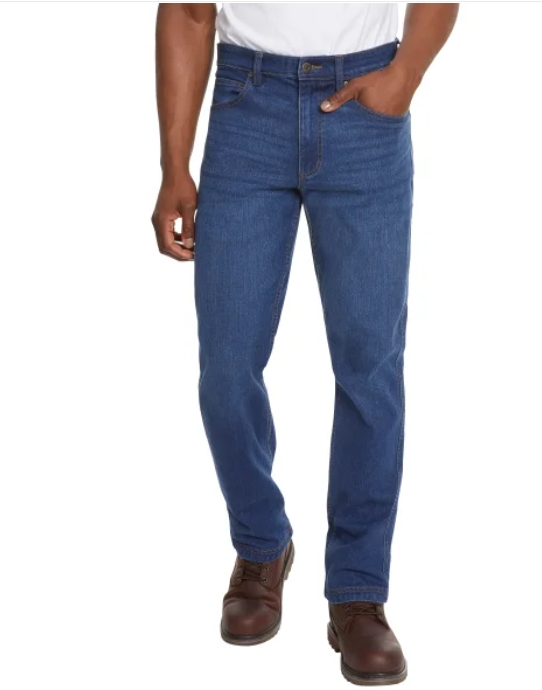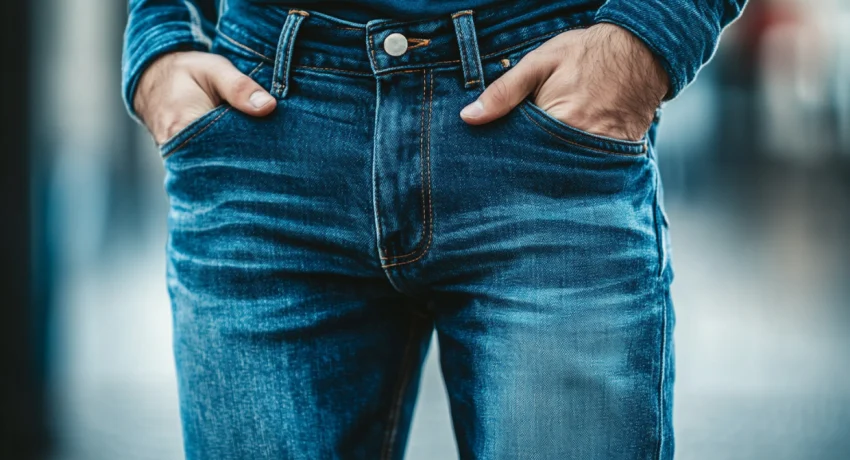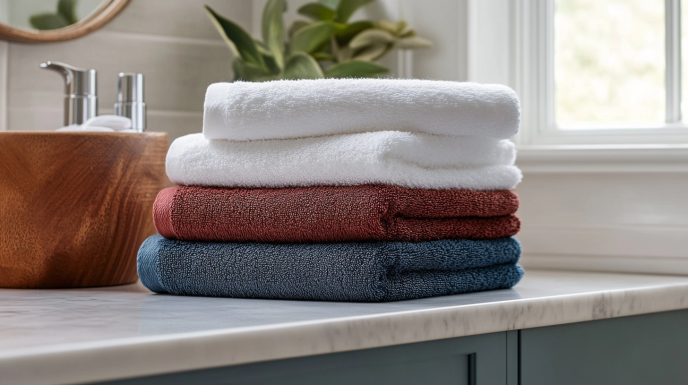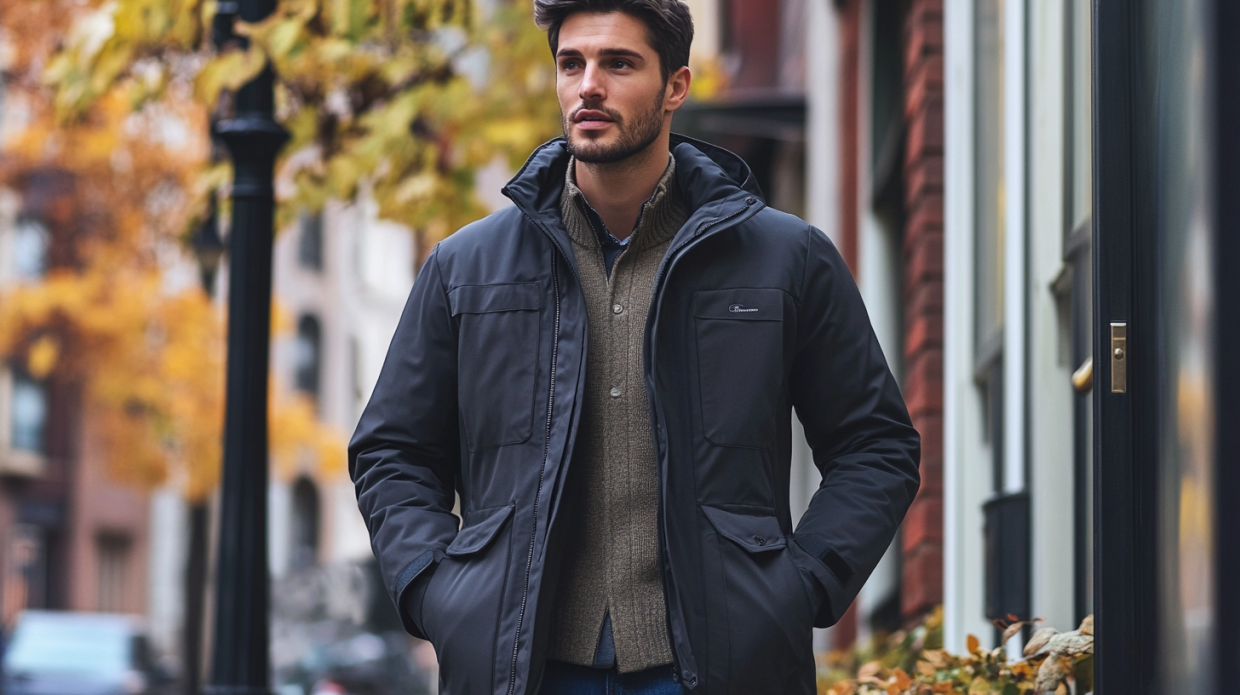
Kirkland Signature Men’s Jean
- Classic 5 Pocket Style
- Straight Fit
- Comfort Stretch Fabric
Quality, Comfort, and Value: Why These Warehouse Club Jeans Deserve a Spot in Your Wardrobe
In the vast landscape of denim options, there’s a contender that often flies under the radar but deserves serious consideration: Kirkland Signature jeans. As a devoted denim enthusiast who’s worn everything from premium Japanese selvedge to fast-fashion finds, I’ve developed a surprising affection for these Costco-branded pants. They’re not flashy, they don’t come with celebrity endorsements, and you won’t see them on fashion week runways. Yet, Kirkland jeans offer an exceptional balance of quality, comfort, and value that’s increasingly rare in today’s clothing market.
I still remember my first pair—purchased somewhat reluctantly during a routine Costco run for paper towels and rotisserie chicken. Five years and countless wears later, those jeans remain in my regular rotation, outlasting pairs that cost three times as much. This surprising longevity prompted me to take a deeper dive into the world of Kirkland denim, exploring everything from available styles to fabric composition, sizing options, and how they stack up against more recognizable brands.
Whether you’re a Costco devotee curious about expanding your membership benefits to your wardrobe, or simply someone who appreciates quality basics at reasonable prices, this comprehensive guide aims to answer every question you might have about these underrated jeans. Let’s unzip the truth about Kirkland jeans and discover if they deserve a place in your closet.
The Kirkland Jeans Lineup: Available Styles for Every Preference
Walking through Costco’s clothing section can sometimes feel like a treasure hunt. Unlike dedicated clothing retailers with consistent inventory, Costco’s selection changes regularly, creating an element of surprise with each visit. This applies to their Kirkland Signature jeans as well, though certain core styles tend to remain available year-round.
For men, Kirkland typically offers three main fits: relaxed, straight, and occasionally slim. The relaxed fit provides generous room through the seat and thigh with a slightly tapered leg—ideal for those who prioritize comfort or have athletic builds. The straight fit offers a classic silhouette that’s neither too loose nor too tight, making it versatile enough for most body types and occasions. When available, the slim fit provides a more contemporary look with a narrower leg opening while still maintaining comfort through strategic fabric blends.
Women’s Kirkland jeans have evolved significantly in recent years, moving beyond basic cuts to include more fashionable options. Current offerings typically include straight leg, bootcut, and slim styles. Some seasonal variations might include ankle-length or cropped options during warmer months. What’s particularly noteworthy is that Kirkland has embraced modern design elements like mid-rise and high-rise waistbands, moving away from the outdated low-rise styles that dominated in previous decades.
Unfortunately for parents looking to outfit the entire family with matching Kirkland denim, the brand doesn’t currently manufacture children’s jeans. This remains one of the few gaps in their otherwise comprehensive clothing line.
What makes the Kirkland jean lineup particularly interesting is how it balances timelessness with subtle nods to current trends. You won’t find extreme distressing, embellishments, or fashion-forward cuts that might look dated next season. Instead, Kirkland focuses on clean, classic designs with small contemporary touches—like the perfect amount of stretch or an updated rise—that keep them feeling current without sacrificing longevity.
Price Point: Exceptional Value Without Compromising Quality
In an era where inflation seems to touch everything, Kirkland jeans remain a refreshing exception to the rule. Consistently priced between $14.99 and $19.99, they represent one of the best values in denim today. This price point is particularly impressive considering comparable jeans from mainstream brands typically start at $40-50 and can easily reach into triple digits.
What’s remarkable isn’t just the low price but what you get for that price. These aren’t the paper-thin, poorly constructed fast-fashion jeans that develop holes after a few wears. Kirkland jeans feature substantial fabric weights, reinforced stitching at stress points, and quality hardware that can withstand years of regular use.
The value proposition becomes even more apparent when comparing cost-per-wear. A $17.99 pair of Kirkland jeans worn weekly for three years comes out to about 11 cents per wear—a fraction of what you’d pay for premium brands that might not necessarily last longer.
It’s worth noting that Costco occasionally offers instant rebates on clothing items, including Kirkland jeans, dropping the price even further. During these promotions, it’s not uncommon to find them for as low as $12.99—less than the cost of lunch in most cities.
This aggressive pricing strategy is possible due to Costco’s unique business model. Rather than marking up products to generate profit margins typical in retail, Costco relies primarily on membership fees for profitability. This allows them to sell products like Kirkland jeans at razor-thin margins, sometimes barely above cost. Additionally, their massive purchasing power and direct relationships with manufacturers eliminate middlemen and reduce costs further.
The result is a product that delivers exceptional value without the typical compromises budget-conscious shoppers have come to expect. You’re not sacrificing quality for price—you’re simply benefiting from Costco’s efficient business practices.
Sizing Options: Inclusive Range with Practical Considerations
One of Kirkland’s strengths is its inclusive sizing approach, particularly for men’s jeans. The typical men’s range spans from 30 to 44 inches in waist measurements, with select styles extending to 48 inches. Inseam options generally include 30, 32, and 34 inches, though availability can vary by store and season.
Women’s Kirkland jeans similarly embrace size diversity, offering options from size 4 through 18 in most styles, with some extending to size 24. Inseam choices typically include 29, 31, and 33 inches, accommodating a range of heights without requiring immediate alterations.
What makes Kirkland’s sizing particularly consumer-friendly is their consistency and reliability. Unlike many fashion brands that engage in “vanity sizing” (labeling garments smaller than their actual measurements to flatter consumers), Kirkland tends to use true measurements that correspond to actual body dimensions. A 34-inch waist means 34 inches—not 36 or 37 as is common with some mainstream brands. This consistency makes online ordering more predictable and reduces the frustration of size fluctuations between different styles.
Another practical consideration is Kirkland’s approach to plus sizes. Rather than segregating larger sizes into a separate “plus” collection (a practice that can feel exclusionary), larger sizes are simply integrated into the main range. This inclusive approach extends to the design elements as well—larger sizes maintain the same style details and aren’t subjected to the boxy, shapeless cuts that sometimes plague plus-size offerings from other brands.
For those between standard sizes, Kirkland jeans tend to be forgiving thanks to their stretch content. However, since they’re sold at such competitive price points, spending a few dollars on tailoring still results in a customized fit at a total cost well below most competitor brands.
One limitation worth noting is the availability of length options for those at extreme ends of the height spectrum. Very tall individuals may find even the longest inseams insufficient, while petite shoppers might need alterations for even the shortest options. This reflects Kirkland’s mass-market approach—covering the needs of most consumers while perhaps not accommodating every specialized requirement.
Fabric Composition: The Secret Behind Comfort and Durability
The fabric composition of Kirkland jeans represents one of their most significant strengths and helps explain their loyal following. While exact percentages can vary between styles and seasons, most Kirkland jeans feature a strategic blend of cotton with performance fibers that enhance comfort without sacrificing authenticity.
Contrary to what some denim purists might expect from a value-oriented brand, Kirkland jeans are not 100% cotton across their entire range. Instead, most styles incorporate approximately 98-99% cotton with 1-2% elastane or spandex. This small percentage of stretch makes a remarkable difference in comfort and movement while maintaining the authentic look and feel of traditional denim.
The cotton used in Kirkland jeans tends to be medium to heavyweight, typically between 12-14 oz per square yard. This substantial weight contributes to their durability and helps them maintain shape throughout the day—avoiding the sagging that often occurs with lighter-weight denim. The cotton itself is generally ring-spun, a higher quality manufacturing process that creates softer, more comfortable fabric than the open-end spinning used in many budget denim products.
For those seeking maximum stretch and flexibility, Kirkland also offers select styles with higher elastane content—around 3-5%—particularly in their women’s line and men’s active flex options. These higher-stretch versions provide exceptional comfort for activities requiring more movement while still maintaining a structured, jean-like appearance.
What’s particularly impressive about Kirkland’s fabric engineering is how well it balances immediate comfort with long-term performance. Many stretch jeans feel great in the fitting room but quickly lose their shape, requiring frequent washing to “reset” the fabric. Kirkland’s blends tend to maintain their recovery properties exceptionally well, returning to their original shape even after extended wear.
The dye processes used also contribute to the jeans’ performance. Most Kirkland jeans undergo multiple rinse cycles during manufacturing, which pre-shrinks the fabric and sets the dye. This reduces both color transfer and the dramatic shrinkage that can plague raw denim. The result is a pair of jeans that largely maintains its size and color through numerous wash cycles.
For environmentally conscious consumers, it’s worth noting that Costco has been gradually implementing more sustainable denim processing across their Kirkland line, including reduced water usage and fewer harsh chemicals. While they don’t prominently advertise these improvements, the changes reflect the company’s broader sustainability initiatives.
Color Options: Classic Palette with Seasonal Variations
When it comes to color selection, Kirkland takes a pragmatic approach that emphasizes versatility and timelessness over trend-chasing. The core color palette remains consistently available and focuses on the essential denim shades that form the backbone of most wardrobes.
For men, the standard offerings typically include:
- Dark indigo/rinse wash (a deep blue with minimal fading)
- Medium blue (a traditional denim shade with moderate fading)
- Light wash (a casual, pre-faded option)
- Black (a solid, non-faded option ideal for dressier occasions)
Women’s color options generally include these same foundational shades while occasionally adding:
- Gray denim (a versatile neutral that pairs easily with both cool and warm tones)
- White (typically seasonal for spring/summer)
- Occasionally, a fashion color like burgundy or olive green might appear as a limited-time offering
What’s notable about Kirkland’s color execution is the restraint shown in processing. Their washes avoid extreme distressing, artificial-looking whiskers, or the overly contrasted fading that can make jeans look cheap or dated. Instead, they opt for subtle, natural-looking wear patterns that mimic how jeans age organically. This approach creates a more sophisticated appearance that works across age groups and style preferences.
The dyes themselves tend to be colorfast and resistant to bleeding, particularly in the darker shades. This represents a significant quality marker, as cheap denim often transfers color extensively during initial wears and washes. Kirkland’s color stability means dark jeans stay dark longer and don’t leave blue stains on your car seats, furniture, or other clothing.
Seasonal variations do occur, with lighter washes becoming more prominent in spring/summer collections and darker, richer tones dominating fall/winter offerings. However, the core colors remain available year-round, allowing shoppers to replace favorite styles without waiting for seasonal restocks.
For those seeking maximum versatility, the dark indigo wash offers the greatest range of use cases, transitioning seamlessly from casual to business-casual environments. The consistent availability of this shade in particular has made it a staple for many Kirkland devotees who appreciate its dress-up/dress-down flexibility.
Kirkland vs. Name Brands: How Do They Compare?
Perhaps the most common question about Kirkland jeans is how they stack up against established denim brands like Levi’s, Wrangler, or Lee. Having worn all extensively, I can offer some honest comparisons that might surprise brand loyalists.
In terms of construction quality, Kirkland jeans frequently equal or exceed their mid-range branded counterparts. Examine the stitching on a pair of Kirkland jeans and you’ll find dense, even seams with reinforcement at stress points—comparable to what you’d see in Levi’s 505s or Wrangler Authentics. The hardware (buttons, rivets, and zippers) is similarly robust, typically featuring YKK zippers and solid metal buttons rather than the plastic components sometimes found in budget lines from name brands.
Fabric quality presents a more nuanced comparison. Premium lines from established brands (like Levi’s Made & Crafted or Wrangler Icons) do use noticeably superior fabrics with more intricate weaves, selvedge edges, or specialized finishing techniques. However, when comparing Kirkland to standard offerings like Levi’s 505/501 or basic Wrangler models, the fabric quality is remarkably similar, with Kirkland sometimes offering heavier weight denim at their price point.
Style and fit is where personal preference becomes most relevant. Established brands have developed their fits over decades and offer more specialized options—Levi’s alone offers more than a dozen different fits for men. Kirkland’s more limited range means you may need to compromise slightly on your ideal fit. However, their core fits (particularly the straight and relaxed options) have been refined over years to work well for most body types.
The most dramatic difference comes in branding and details. Kirkland jeans lack the recognizable back pocket stitching of Levi’s or the leather patch of premium brands. They also tend to feature more standardized details rather than signature elements that denim enthusiasts might appreciate. For some consumers, this absence of obvious branding is actually a benefit, creating a cleaner, more versatile aesthetic.
Where Kirkland undeniably dominates is value. A pair of basic Levi’s 505 jeans typically retails for $45-70, while comparable Wrangler or Lee options range from $30-50. At $14.99-19.99, Kirkland delivers 80-90% of the quality at roughly 30-40% of the price. This value proposition becomes even more compelling when considering longevity—many wearers report their Kirkland jeans outlasting branded alternatives that cost significantly more.
For everyday wear, the quality differences between Kirkland and standard offerings from major brands are minimal enough that most consumers would be hard-pressed to justify the price premium of the name brands. However, for those seeking specialized fits, unique styling details, or premium denim qualities like selvedge construction, the major brands still maintain advantages worth considering.
Durability: Standing Up to Daily Wear and Tear
Longevity is perhaps the most surprising aspect of Kirkland jeans for first-time buyers. Despite their budget-friendly price point, these jeans demonstrate remarkable durability that frequently outlasts expectations and challenges more expensive competitors.
The foundation of this durability begins with material choices. The medium-to-heavyweight denim (typically 12-14oz) used in most Kirkland styles provides substantial resistance to abrasion and stress. This is complemented by reinforced stitching at key stress points—particularly the crotch gusset, pocket corners, and belt loops—areas where cheaper jeans typically fail first.
In practical testing (both my own extended wear and consolidated feedback from long-term users), Kirkland jeans consistently demonstrate excellent resistance to common failure points:
- Crotch blowouts: The typical first failure in many jeans occurs surprisingly rarely in Kirkland jeans, partly due to their generous cut in this area and reinforced stitching.
- Knee thinning: The substantial fabric weight helps Kirkland jeans maintain integrity at the knees, even with regular kneeling.
- Pocket tearing: The deep pockets (discussed more below) are secured with robust stitching that resists the tearing often seen when regularly carrying phones or wallets.
- Color fastness: After numerous wash cycles, Kirkland jeans maintain their color remarkably well, avoiding the faded, worn-out appearance that can make otherwise structurally sound jeans look aged.
For heavy-duty work applications, Kirkland jeans perform admirably against dedicated work brands in most scenarios. While they lack some specialized features of purpose-built work jeans (like extra tool pockets or hammer loops), the basic durability is comparable to entry-level Carhartt or Dickies options. Tradespeople who regularly kneel on abrasive surfaces may still benefit from dedicated work brands with reinforced knees, but for general labor, Kirkland jeans prove surprisingly capable.
One key durability factor is how they respond to washing and drying. Unlike some premium denim that requires careful handling to maintain integrity, Kirkland jeans are engineered for standard home laundering. They withstand regular machine washing and even tumble drying without significant degradation of fibers or construction. This practical approach to maintenance extends their usable lifespan for consumers who prefer straightforward care routines.
The inclusion of stretch fibers actually enhances durability rather than compromising it (as some denim purists might expect). The slight give in the fabric reduces stress at tight points during movement, preventing the fiber breakage that can occur with rigid denim when repeatedly stressed in the same areas.
For those concerned about long-term appearance, Kirkland jeans tend to age gracefully. Rather than developing obvious stress points or irregular fading, they generally wear evenly across high-contact areas, creating a natural-looking patina over time. This contributes to their longevity not just structurally but aesthetically as well.
Care and Maintenance: Practical Considerations
One of the appealing aspects of Kirkland jeans is their low-maintenance nature. Unlike premium raw denim that comes with elaborate care instructions and warnings against washing, Kirkland jeans are designed for practical, everyday care routines.
All Kirkland jeans are fully machine washable, engineered to withstand standard home laundering without special treatment. The pre-washed nature of most styles means minimal shrinkage occurs after purchase, allowing for confident buying without compensating for potential size changes.
For maximum longevity, some basic care practices can help extend their already impressive lifespan:
- Washing inside-out helps protect the outer surface from abrasion in the washing machine while still thoroughly cleaning the areas that have direct contact with skin.
- Cold or warm water washing (avoiding hot) preserves color and reduces stress on the stretch fibers that contribute to the jeans’ comfort.
- While tumble drying is acceptable and won’t dramatically impact longevity, air drying can reduce energy usage and minimize the gradual fabric stress that accumulates with repeated machine drying.
- Frequency of washing can be reduced compared to other garments. Unless visibly soiled or odorous, jeans can typically be worn multiple times between washes, which extends their color retention and overall lifespan.
Regarding shrinkage, Kirkland jeans exhibit minimal size changes after washing—typically less than 1% in most dimensions. This stability is due to their pre-shrunk manufacturing process, which subjects the fabric to controlled shrinking before construction. The small percentage of synthetic fibers in the blend also contributes to dimensional stability through wash cycles.
For those rare instances where stains occur, Kirkland denim responds well to standard stain treatment methods. The substantial fabric weight and tight weave create good resistance to stain penetration, allowing most surface stains to be addressed without special products or techniques.
One practical consideration worth noting is the break-in period. While not as rigid as raw denim that requires extended wearing to conform to the body, new Kirkland jeans do typically soften noticeably after 2-3 wash cycles. This initial stiffness doesn’t indicate poor quality but rather the substantial fabric weight that contributes to their durability.
Functional Features: Pockets, Comfort, and Practicality
Beyond basic construction and materials, Kirkland jeans incorporate several functional features that enhance their everyday usability—elements that aren’t immediately obvious but significantly impact satisfaction during regular wear.
Pocket design represents one of Kirkland’s notable strengths. Front pockets are generously sized and deep enough to securely hold smartphones (even larger models like the iPhone Pro Max or Samsung Galaxy Ultra) without risk of slipping out when seated. This practical depth is increasingly rare in many fashion-oriented jeans, which often sacrifice pocket functionality for sleeker silhouettes.
Back pockets similarly prioritize functionality with dimensions sufficient to completely contain a standard wallet while maintaining accessibility. The positioning is carefully calibrated to balance security with comfort when sitting.
The fifth pocket (the small pocket within the right front pocket) maintains traditional dimensions rather than being reduced to a decorative element as seen in some contemporary designs. This allows it to fulfill its original purpose of securely holding small valuables like keys or coins.
Belt loops deserve specific mention for their robust construction. With width typically exceeding 1 inch and double-stitched attachment to the waistband, they easily accommodate standard work belts without the distortion or tearing that can occur with flimsier loops. Most styles feature five belt loops rather than the minimum three found on some budget offerings, providing more even distribution of pressure when wearing heavier belts.
Waistband construction incorporates sufficient rigidity to maintain shape while including enough give to remain comfortable throughout a day of wear. The balance strikes an excellent middle ground between overly stiff waistbands that can dig into the wearer when seated and excessively soft ones that lose their shape after minimal wear.
For those concerned about mobility, the inclusion of stretch fibers creates noticeable benefits during active movements. Whether bending, squatting, or climbing stairs, the slight give in the fabric reduces binding and restriction typically associated with pure cotton denim. This enhanced mobility makes Kirkland jeans particularly suitable for active lifestyles or work environments requiring frequent movement.
Seam placement is another thoughtfully executed detail. Inseam construction positions the seam slightly forward of center, reducing direct pressure on sensitive areas during extended sitting. This subtle adjustment significantly enhances comfort during desk work or long commutes without visibly altering the jeans’ appearance.
Ethical Considerations: Manufacturing Practices
For increasingly conscientious consumers, understanding the ethical dimensions of clothing production has become an important consideration. Costco has been gradually increasing transparency around Kirkland Signature manufacturing, including their denim products.
While Kirkland jeans don’t carry specific ethical certifications like Fair Trade or organic cotton designations, Costco does maintain a supplier Code of Conduct that addresses fundamental labor standards. This code prohibits forced labor, child labor, and unsafe working conditions throughout their supply chain, with regular compliance audits to verify adherence.
Manufacturing locations for Kirkland jeans vary by season and production run but typically include facilities in Mexico, Bangladesh, and Vietnam. Costco has invested in improving standards at these production facilities, particularly focusing on water usage reduction and chemical management in denim processing—areas of significant environmental impact in traditional jean manufacturing.
From an environmental perspective, Kirkland’s approach emphasizes durability as a sustainability strategy. By creating products that last significantly longer than fast-fashion alternatives, they reduce the overall resource consumption associated with frequent replacement. This “slow fashion” approach, while less marketable than flashier sustainability claims, represents a meaningful environmental benefit.
Material sourcing for Kirkland denim continues to evolve, with incremental improvements in sustainability. Recent production runs have begun incorporating BCI (Better Cotton Initiative) cotton, which promotes more sustainable growing practices. The company has also been reducing water consumption in denim washing and finishing, though they don’t publicize specific metrics as prominently as some dedicated sustainable brands.
For consumers prioritizing ethical production above all other considerations, specialized denim brands with comprehensive sustainability programs and full supply chain transparency will still offer advantages over Kirkland. However, for those seeking a reasonable balance of ethics, quality, and value, Kirkland represents a middle ground that avoids the worst practices of ultra-fast fashion while delivering exceptional longevity at accessible prices.
Availability: Where to Find Kirkland Jeans
The primary challenge for many potential Kirkland jeans customers is availability. Unlike ubiquitous brands sold through multiple retailers, Kirkland Signature products—including their jeans—are exclusive to Costco channels.
Physical Costco warehouse locations represent the most reliable source, with jeans typically located in the central apparel section. Selection varies by store size and region, with larger warehouses generally offering more size options and styles. Seasonal variation affects availability as well, with the most comprehensive selection typically appearing during major seasonal transitions (August/September and January/February).
For those preferring online shopping, Costco.com does offer Kirkland jeans, though the selection is sometimes more limited than in-warehouse options. Online availability provides access for those without convenient warehouse locations, though standard Costco membership is still required for purchasing. The website occasionally offers styles or colors not found in physical locations, making it worth checking both channels for maximum selection.
One shopping strategy many Kirkland enthusiasts employ is buying multiple pairs when finding a preferred style and fit. Given the relatively infrequent restocking and potential for style adjustments between production runs, securing backup pairs ensures continued access to favorites. At the budget-friendly price point, this approach remains economical even when purchasing several pairs simultaneously.
The Costco membership requirement ($60 annually for the basic Gold Star membership) may initially seem like a barrier for those solely interested in accessing Kirkland clothing. However, considering the substantial savings on jeans alone—often $30+ per pair compared to comparable quality alternatives—the membership can quickly pay for itself even for infrequent Costco shoppers.
For those seeking Kirkland jeans without a membership, limited options exist. Occasional sales through Costco.com to non-members (with a 5% surcharge) provide one avenue, while secondary markets like eBay or local classified ads sometimes feature new-with-tags Kirkland jeans from members reselling unworn purchases.
The Bottom Line: Are Kirkland Jeans Worth It?
After exhaustive analysis of every aspect of Kirkland jeans—from construction to comfort, durability to design—the verdict is clear: these budget-friendly basics represent one of the most compelling values in modern clothing. They deliver approximately 80-90% of the quality, comfort, and durability of jeans costing three times as much, making them an exceptional choice for pragmatic consumers who prioritize function and value over fashion branding.
The rare combination of quality construction, comfortable fabric blends, thoughtful design details, and remarkable longevity at their price point makes Kirkland jeans worthy of consideration for virtually any shopper. While they may lack the fashion cachet of premium brands or the specialized features of purpose-built workwear, they excel at their primary purpose: providing reliable, comfortable, long-lasting denim at accessible prices.
For those new to Costco’s clothing offerings or skeptical of store-brand apparel, Kirkland jeans offer an ideal entry point to test the quality of the broader Kirkland Signature line. The minimal financial investment required—under $20 in most cases—presents little risk while potentially yielding years of satisfied wear.
In an era of increasing disconnection between price and quality in consumer goods, Kirkland jeans stand as a refreshing counterexample—products whose actual value exceeds their modest price tags by a substantial margin. They remind us that sometimes the best solutions aren’t the most expensive or heavily marketed, but rather those that simply focus on delivering fundamental quality at fair prices.
Whether as workwear, casual basics, or even smart-casual options in their darker finishes, Kirkland jeans have earned their place as quiet overachievers in a market filled with overpriced underperformers. For value-conscious consumers seeking quality without compromise, they remain among the best-kept secrets in affordable apparel.




